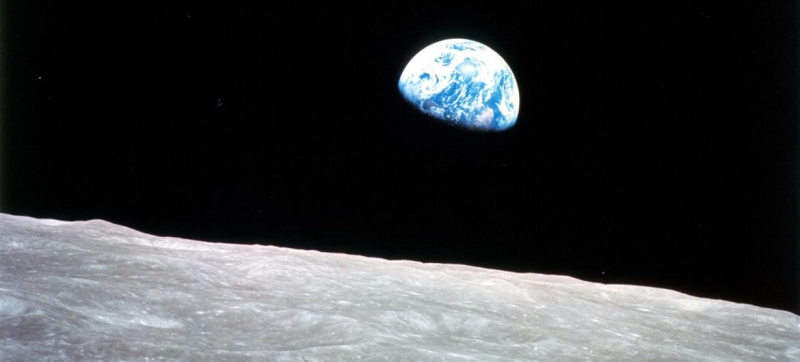- Indonesia school collapse death toll rises to 17, dozens still missing |
- Gazans Welcome Trump Ceasefire Call as Hostages Set for Release |
- Conservative Takaichi Poised to Become Japan’s First Woman PM |
- Salahuddin accuses Jamaat of backing vested quarter to disrupt polls |
UN Marks World Space Week With Theme 'Living in Space'

Apollo 8, the first human spaceflight to reach the Moon, entered lunar orbit on Christmas Eve on December 24th, 1968.
Humanity is looking up – and beyond. This Saturday, World Space Week begins, inviting the world to imagine what life might look like beyond planet Earth.
With the 2025 theme “Living in Space,” the celebration highlights how scientific innovation, international law, and collaboration are shaping the future of human exploration among the stars – and the technologies already transforming life at home.
Established by the UN in 1999, the annual event runs from 4 to 10 October, framed by two historic milestones: the 1957 launch of Sputnik 1, the world’s first artificial satellite, and the 1967 Outer Space Treaty, which laid the foundation of international space law.
Today, more than 90 countries launch satellites, and the global space economy is projected to exceed $730 billion by 2030.
“Space is not a distant dream. It’s already a shared reality,” said Aarti Holla-Maini, Director of the UN Office for Outer Space Affairs (OOSA). “If we work together, it can help us solve Earth’s most pressing challenges.”
This year’s theme encourages the public to imagine life beyond Earth, from lunar bases to long-term orbital missions. Yet many of the technologies enabling such visions already underpin daily life – from solar panels and water purification to GPS, weather monitoring, and telecommunications.
However, space is becoming increasingly crowded. As of 2024, more than 45,000 human-made objects orbit Earth, from active satellites to defunct spacecraft. Thousands more are planned, heightening the risk of collisions and space debris.
OOSA supports countries in adopting standards for sustainability, debris mitigation, and “space traffic management,” while maintaining the UN registry of orbiting objects to ensure safe and equitable access.
Lunar exploration is rapidly expanding. More than 100 missions are planned by 2030, ranging from scientific research to commercial ventures. OOSA’s “One Moon for All” initiative aims to keep these efforts safe, peaceful, and inclusive.
“These missions offer immense opportunities for knowledge and growth, but they also require careful governance and planning,” Ms. Holla-Maini noted.
Space is increasingly a tool for development, not only for wealthy nations. The UN has assisted countries such as Kenya, Nepal, and Guatemala in building their first satellites, and supports governments in using space data for disaster response, climate monitoring, and food security.
Satellite imagery also helps nations combat illegal fishing, monitor forest fires, and prevent deforestation.
Multilateral cooperation remains critical to keeping space conflict-free and accessible to all, particularly as private companies expand and geopolitical tensions rise.
Former NASA astronaut and UN Champion for Space Scott Kelly, reflecting on his 520 days aboard the International Space Station (ISS), described it as the ultimate example of global collaboration.
“We built this space station while orbiting Earth at 17,500 miles an hour, in a vacuum, under extreme temperatures,” he said. “Its modules – some of which had never touched each other before on Earth – were joined in orbit by astronauts and cosmonauts working in the most difficult conditions.”
“This space station is the hardest thing we have ever done,” Kelly added. “If we can do this, we can do anything.”

